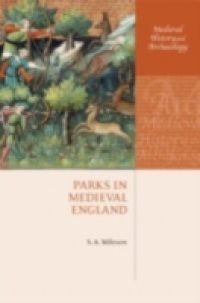Parks were prominent and, indeed, controversial features of the medieval countryside, but they have been unevenly studied and remain only partly understood. Stephen Mileson provides the first full-length study of the subject, examining parks across the country and throughout the Middle Ages in their full social, economic, jurisdictional, and landscape context. The first half of the book investigates the purpose of these royal and aristocratic reserves, which have been variously claimed as hunting grounds, economic assets, landscape settings for residences, and status symbols. An emphasis on the aristocratic passion for the chase as the key motivation for park-making provides an important challenge to more recent views and allows for a deeper appreciation of the connection between park-making and the expression of power and lordship. The second part of the book examines the impact of park creation on wider society, from the king and aristocracy to peasants and townsmen. Instead of the traditional emphasis on the importance of royal regulation, greater attention is paid to the effects of lordly park-making on other members of the landed elite and ordinary people. These widespread enclosures interfered with customary uses of woodland and waste, hunting practices, roads and farming; not surprisingly, they could become a focusfor aristocratic feud, popular protest and furtive resistance. Combining historical, archaeological, and landscape evidence, this ground-breaking study provides fresh insight into contemporary values and how they helped to shape the medieval landscape.

